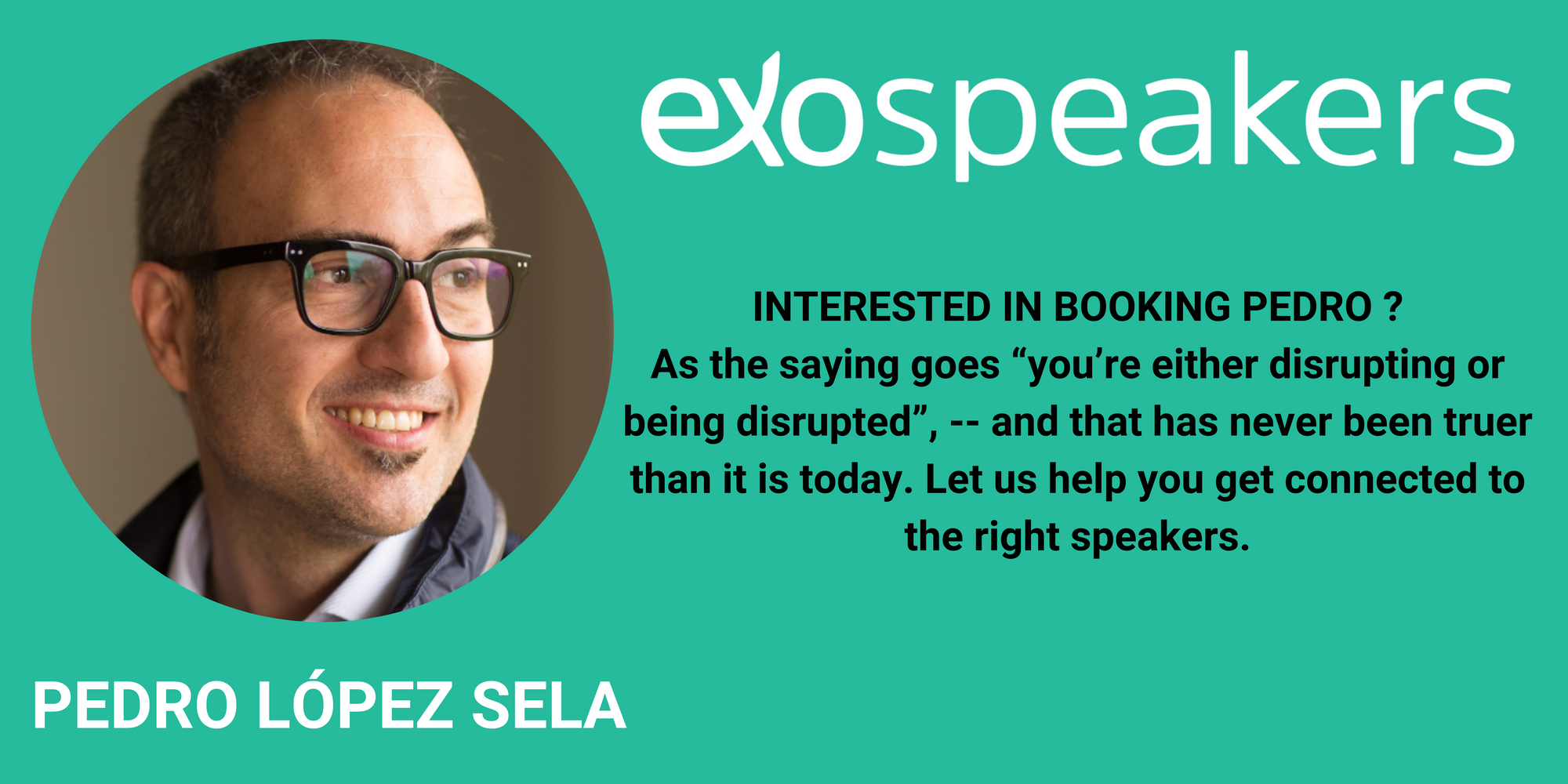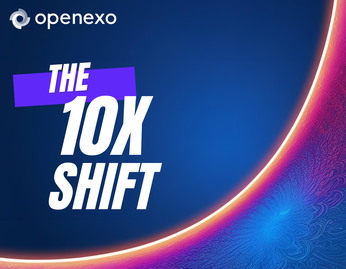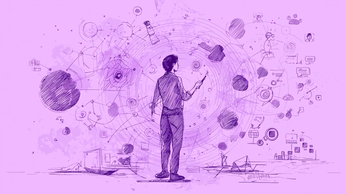
Work as Necessary as Rest
Achieving balance involves challenging the beliefs you have lived by, especially the "have to" (be available, be present, multiply, etc.). When the "have to" becomes present in your life, you begin to live according to the agenda of others, not your own.
There is no doubt that the path of entrepreneurship is a long one and, in many ways, it alters the rhythm of the entrepreneur's life: the telephone is answered all the time (it can be an opportunity for the business), endless meetings are attended, especially unscheduled ones, external support is sought, tax and production matters are attended to, etcetera. These are some of the factors involved in the daily life of those hoping to succeed soon.
The desire to be successful leads most entrepreneurs to work hard every day, accumulating between 60 and 70 hours a week, which is not recommended since it far exceeds the ideal weekly work time to live a full and balanced life.
In the eagerness to consolidate and grow the business, the entrepreneur usually focuses all his attention on the aspects that affect the business but neglects a vital aspect. If you want the business to go well, the first one who must be well is you. Continuous pressure can cause serious physical and mental problems if it is not managed correctly.
Being under pressure is not the same as being under stress. According to experts, while stress is the day-to-day that keeps you alert and helps you spot opportunities, pressure has more to do with being too far ahead.
There are many examples of this in the world: successful entrepreneurs who have faced everything from rashes to hernias and heart problems but were slow to realize their health situation. Alejandro Artacho, CEO and co-founder of Spotahome, a digital rental platform that allows tenants to book properties instantly and securely, realized he was gambling with his life until he faced the pandemic and near technical bankruptcy of his business. During the span of the pandemic, he underwent five hernias that put him in serious mortal danger.
Until then, this was his life rhythm: "Between 2018 and 2020 Spotahome had grown tremendously. I would get up at 5:30 in the morning on Monday to travel to London, return on Wednesday evening, start on Thursday in Madrid, and continue intensively every day of the week. Not to mention that most weeks I had to catch several flights to Berlin, Paris... On top of that, I was on the phone all day. I would fall asleep and wake up looking at my cell phone. I ate terribly, slept terribly, in two years I gained 20 kilos and, as my girl told me, I was sourer, more unhappy every day."
Some Effects
Sometimes success can be counterproductive because it masks the symptoms of chronic stress. Psychologist Monica Kiseno, who knows the relationship between entrepreneurship and mental health, explains that many mental risks can be caused by overwork and pressure, including anxiety, depression, chronic stress, insomnia, and burnout, as well as mental fatigue and the use of psychoactive substances.
This is important to consider since all this can lead to hypersensitivity, inability to make decisions, and lack of emotional regulation.
Let's Think About Burnout
Although for many entrepreneurs there may come a point where working conditions are too stressful or overwhelming to continue, for the vast majority, burnout can lead to a loss of passion for the venture, in a stealthy, slow, and gradual way that increases unconsciously every day.
This burnout literally "burns" the person and leads them to abandon the project prematurely by generating a feeling of desperation that affects them physically, in addition to generating more stress and making them susceptible to other physical and mental illnesses, and even to developing heart problems.
The problem with burnout is that it is difficult to detect, especially in the beginning. Therefore, an entrepreneur should be aware of at least some of the following symptoms:
- constant fear of going to work
- changes in personality and mood (noticeable to others but unnoticeable to the entrepreneur)
- continuous headaches
- permanent tiredness
- insomnia
Mainly, sleep is the first thing to be lost when under pressure. When you get home after a long day, subject to the pressure of finishing a project, planning a launch, and/or solving a series of situations on the fly, you realize a series of unresolved issues. You dedicate yourself to "move forward" as much as you can and schedule the next day's activities. When you finally get to bed, it takes you forever to sleep as your brain is still revved up.
What About Insomnia?
Recent studies have shown that sleep-deprived entrepreneurs are slowly killing themselves because they "already know how to get through the sleepless night."
In a survey of Inc. 500 CEOs, nearly half (48%) said they slept six or fewer hours a night when the scientifically recommended time is eight hours. Another Harvard Business Review (HBR) survey of more than 180 business leaders found that four in 10 (43%) said they did not get enough sleep at least four nights a week.
Studies repeatedly show that chronic sleep deprivation increases the risk of nervous system, digestive, glucose, and blood circulation disorders and contributes to colorectal cancer and even premature death.
In general, lack of sufficient sleep can generate effects that will impact performance at work.
Some of these impacts may include:
- loss of attention (the mind wanders)
- impairment in long-term memory
- negative impact on decision-making
- loss of concentration
- decreased arithmetic ability (more reliance on the calculator even for simple operations)
- the poor blood supply to the brain
- slowed reaction time
A 2018 research showed that sleep deprivation and sleep debt lead to manifest anger. It is then that an entrepreneur may take it out on their closest collaborator, which can result in decreased work engagement and severe damage to the relationship.
Another recent study found that sleep-deprived people experience an overall reduction in positive emotions and show less ability to regulate their negative emotions. Also, in a sleep-deprived state, they are more likely to misinterpret signals from others, overreact to events, and express themselves in negative terms.
Against this backdrop, it is not wrong to say that sleep-deprived entrepreneurs are at greater risk of failure.
And... Not to Mention Vacations?
The pressure that entrepreneurs feel to get their project off the ground soon makes it difficult for them to disconnect from the activity for a reasonable period and rest physically and mentally, which, in the end, is important to maintain a good state of health that allows them to properly manage their project.
This does not mean disengaging entirely from the venture, but the need to generate those processes that allow them to make some free time a reality, such as the assignment of responsibilities with collaborators or the anticipated coordination with clients and suppliers.
There are cases of entrepreneurs who have designed some processes to make free time a reality:
Tony Gauda, founder and CEO of insider e-threat security company ThinAir, in Palo Alto, California, expresses, "any CEOs and high performers think there is no reason to take time off, but my way of looking at work and life is a marathon.” No matter how fast or elite you are, you're not going to be able to run 26.2 miles in a row without taking a break. The way I convince myself to take a break, and the way I would advise others to do the same is to remember that rest is a performance enhancer, not an inhibitor." He asserts that when he returns from vacation, he is fresher, more productive, and more efficient.
Lauren Milligan, a career development coach in the Chicago area, says the key to taking a break lies in "Give current clients plenty of notice, a continuity plan, and a contingency plan. With these elements, entrepreneurs can take a guilt-free vacation like a salaried employee." He says that a virtual assistant is a perfect continuity plan, and the contingency plan is based on the virtual assistant knowing who to contact if advice is needed.
Meanwhile, Sam Butler, an independent public relations consultant in Seattle, says entrepreneurs need to remember that running a business is a marathon, not a sprint. He simply says, "If you can't even take a little vacation now and then, I'm sorry, but you have to ask yourself what you're doing wrong."
An article published in Harvard Business Review mentions an international study conducted by the Center for Creative Leadership, which highlights that professionals, executives, and business owners in the United States and 36 other countries currently work 72 hours a week and only have a daily average of three hours during the workday to eat, exercise or do some shopping.
This means that they either do not take vacations at all, or they take them for minimal periods, under the concept that they are necessary for their positions for the operation of the business. They do not realize that they are generating certain symptoms of anxiety that may hinder their ability to think clearly and grow their business.
The question then arises: how much time should an entrepreneur take for a vacation? Some experts say that an entrepreneur should take at least four alternating weeks of vacation (one per quarter). This is enough time to: relax and restart with a clear mind towards the next quarter's objectives; reset the biological clock by giving the body a rest; plan the following steps, and reflect and appreciate everything you already have which is not achieved during daily work, and allow employees to excel at work by fully assuming their responsibilities while showing them confidence.
The Important Thing: Balancing Life
Being an entrepreneur is not easy, especially at the beginning. You go through many ups and downs. His desire to get ahead unbalances the entrepreneur's family and personal life. The temptation to overwork is always present, but working longer hours is not necessarily synonymous with higher productivity. Therefore, people in such circumstances can hardly achieve their goals.
Suppose you are an "always on, always available, always connected" entrepreneur. In that case, you probably feel that you are running a lot but not making progress, but you are also prone to all kinds of stress and a lot of unnecessary stress.
If you begin to find it increasingly difficult to make decisions, become irritable more easily, change your mood frequently, find it hard to sleep and find that your appetite changes easily, you may be a victim of the consequences of stress. Hence the importance of defining, seeking, and achieving a balance between work and personal and family life. This involves, among other things, setting clear goals and limits; scheduling time for each area that is meaningful and committing to it; and taking care of your health and consequent well-being.
Achieving balance involves challenging the beliefs you have lived by, especially the "have to" (be available, be present, multiply, etc.). When the "have to" becomes present in your life, you begin to live according to the agenda of others, not your own. It also requires recognizing the need to delegate, that is, to trust others and forget about "it's better if I do it myself" or "there is no time to teach someone else."
Balancing also means taking short breaks to do something else. For example, an insurance company in Mexico built a labyrinth similar to the mythical Chartres labyrinth for its employees to relax during work hours. You could walk around the block, read a book chapter, and so on.
Another balancing factor is learning to say "no" without feeling guilty. This involves preventing anyone else at work from trying to interfere with your plans and goals for family life or personal tastes. Similarly, schedule your email and chatting schedules; these should ideally fall within work time to respect personal time.
Finally, you can strike a balance if you set your mind and stick to working no more than 40 hours a week. It probably sounds crazy, especially when you're just starting, but 40 hours a week is proven to be the sweet spot for keeping unnecessary stress and overwhelm at bay. In some of the world's most competitive countries, it's illegal to work more than 48 hours a week.
In Summary
Do you feel overcommitted? Overwhelmed? Uncompensated? Stressed out? How can an entrepreneur balance their work and personal life?
Among the most important factors to reduce stress, achieve greater productivity and balance your life are: establish rest times and learn to manage small spaces for disconnection; include relaxing activities in your work schedule; do not try to achieve all your goals at once, it is better to establish one or two that you can accomplish one hundred percent; identify your emotions and recognize when you need help.
Also, prioritize your activities and give preference to those that contribute to your physical and mental health, such as dancing, running, walking, and doing activities that generate movement. Eat healthy food and respect your eating schedules, do not do it in the office and go out to a restaurant or eat on a park bench. Similarly, take short breaks to breathe deeply, stretch your body and listen to your favorite songs. Sleep well, and spend time with your family and friends.
Other recommendations:
Have a specific time to turn off all devices: television, telephone, computer, etc., trying to do it at least two hours before going to bed; stick to it, no matter what. Also, keep all technology out of the bedroom (including television), and establish a bedtime routine that includes a relaxing activity, dim lights, and a quiet environment. Also, avoid coffee and alcohol at least four hours before bedtime, especially if you are sensitive to these substances.
If your brain is still tuned to "work" mode when you get to bed, write down your thoughts in a notebook, try reading a non-work book, and try to go back to sleep. Support yourself by listening to some soft music or white noise (a constant, even sound).
The inability to separate work and home life is common and can weigh on entrepreneurs. Scientists reported in 2018 that work-related stressors substantially affect how entrepreneurs, in particular, recover and separate from work during non-work times and, consequently, how they sleep at night.
Now ask yourself:
Are you feeling tired, sad, overwhelmed, worried, or frazzled? What do you attribute it to? Think about your work/family life in the last few months and conclude your current state.
How has your quality of rest been in the last few months? Reflect on how many hours you rest and how many times you have gone to bed thinking about the problems you faced during the day.
Have you taken care of your physical and mental well-being? Be honest: How many times a week do you exercise, and in what ways do you distract your mind from work situations?
How much time have you dedicated to yourself and/or your family? Has it been quality time, or have you wasted it talking about your business problems?
The idea is that you do a review that allows you to see where you have failures and what decisions you must make to solve them and achieve a balance between personal and work. Remember: work is as important as rest, and vacations are not deserved, but necessary.
Prioritize yourself. Keep in mind that a business is a marathon, not a sprint, and the more stress you have, the worse leader you will be. You will not get the results you want, and that will only generate more stress.

ExO Insight Newsletter
Join the newsletter to receive the latest updates in your inbox.









